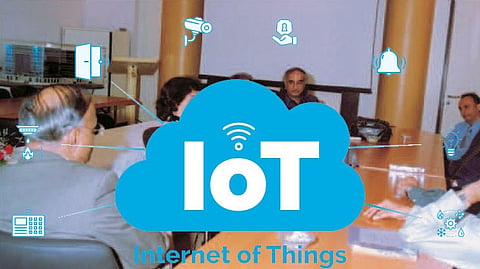Managers for the digital era
There should be little disagreement to the growing reliance on digital in these times. Data has been equated with oil, gold and currency. Digital, on the other hand, in the form of processes or machines, are equated as the necessary engines integral to the system. Multiple books have extolled on the virtues of the digital era.
The rapid advancement of the digital revolution is reshaping traditional business models and redefining industry boundaries like never before. Key trends driving this transformation include artificial intelligence (AI) and machine learning, which are automating tasks, enhancing decision-making and personalising customer experiences. For instance, AI-powered chatbots provide 24x7 customer support, allowing human agents to focus on more complex issues. The Internet of Things (IoT) is another major trend, as interconnected devices generate vast data flows that enable real-time insights and predictive analytics. Blockchain technology, known for secure and transparent transactions, is revolutionising areas, such as supply chain management, finance, and healthcare. Meanwhile, cyber-security has become a critical priority for organisations as digital threats continue to escalate.
This digital revolution has irrevocably transformed the business landscape, necessitating a paradigm shift in managerial thinking and skillsets. There are three crucial aspects in the manner the digital has enabled both the business and society alike. Primarily, the digital era has resulted in more data-driven decision making. Secondly, there has been a huge uptick in efficiency and cost-saving for businesses via automation utilisation of techniques such as artificial intelligence or robotics. However, the biggest benefactor from adopting digital technologies has been a boost in connectivity and collaboration. For example, digital platforms like Zoom or Microsoft Teams have democratised access to education and work opportunities, breaking the traditional barriers.
A ‘what-if’ analysis
Although there are several benefits to digital, explaining their relevance has always been a challenge. Digital is like a company’s goodwill, brand recognition or even trademark -- intangible at best. The benefits of intangibles are usually implied but difficult to grasp. A ‘what-if’ analysis on digital could help shed more light on the concept.
If future managers remain unprepared for a digital era, businesses and critical sectors may suffer inefficiencies, vulnerabilities and even lose their competitive advantage. In industries such as retail and finance, digital agility has already enabled personalised services and robust security. For example, in the banking sector, transactions may be digitally scrutinised to assess risk and fraud. A lack of digital-preparedness could not only result in a customer losing money but it could create an atmosphere of distrust in the banking sector.
In sectors such as manufacturing, logistics, healthcare, and energy, digital tools like IoT and AI are key to optimising resources and driving innovation. Manufacturing and logistics companies lacking digital expertise may experience supply chain inefficiencies and higher operational costs. In healthcare, data security risks can escalate without proper digital frameworks, impacting patient trust and safety. On a national scale, there is a possibility of digitally unequipped managers risking slower economic growth, environmental inefficiencies and even increased competition from advanced economies. Digital readiness therefore is crucial not just for operational success but for maintaining economic and environmental sustainability.
Digital-era skills
Another question to seek would be what are some skills and ways to prepare future managers for this digital-era. A strong foundation in technical skills that supports data-driven decision-making and secure, efficient operations is the need of the hour. Data literacy has become essential as organisations leverage big data to understand trends, optimise processes and make informed decisions. With this skill, employees can interpret data visualisations, recognise patterns and utilise analytics tools effectively.
Soft skills, such as adaptability, agility and emotional intelligence, have become as vital as technical skills for success, largely due to the unique demands of a fast-changing and inter-connected work environment. Adaptability and agility are essential, as digital transformation means rapid shifts in technology, market trends and business models. Employees need to be comfortable with continuous learning, quickly adjusting to new tools, systems and workflows.
Within the subset of soft-skills, there has also been a resurgence in design thinking, which utilises a humanisable approach to problem-solving. Project management frameworks such as Agile, for instance, are not only flexibility but also iterative in nature. A leadership approach engrained with soft skills can enable organisations to build productive workforce – one that is flexible, adaptable, focussed on innovation and desires to grow in the digital landscape.
The author is professor & director, IIM Mumbai

